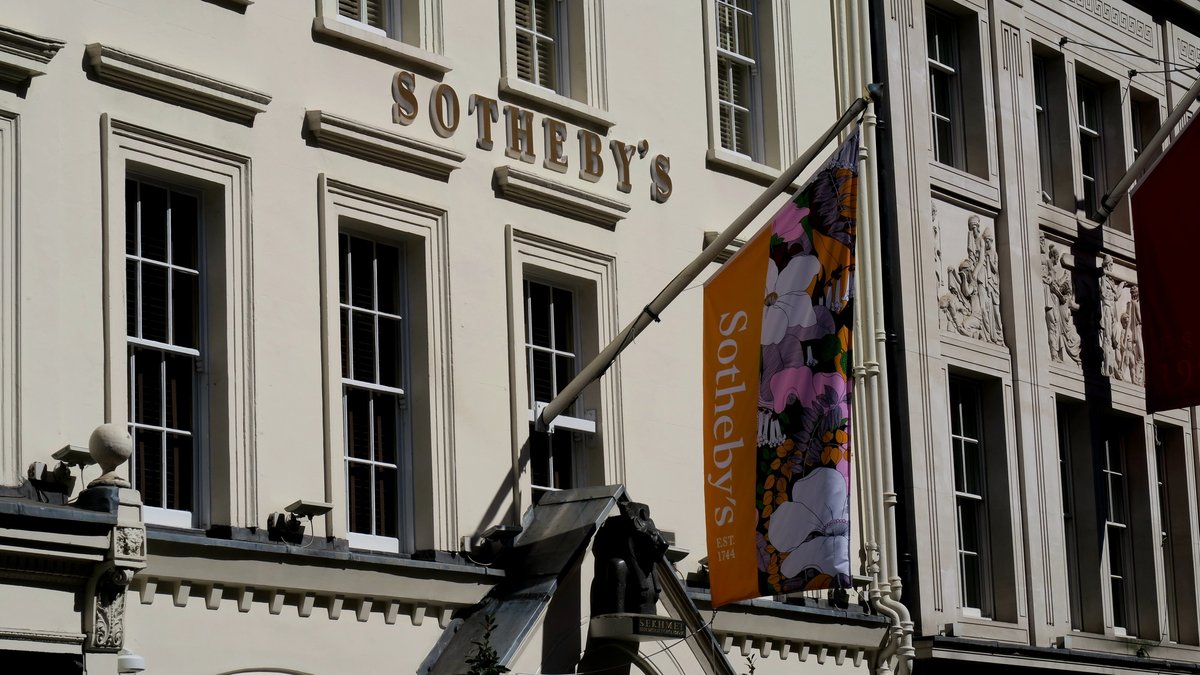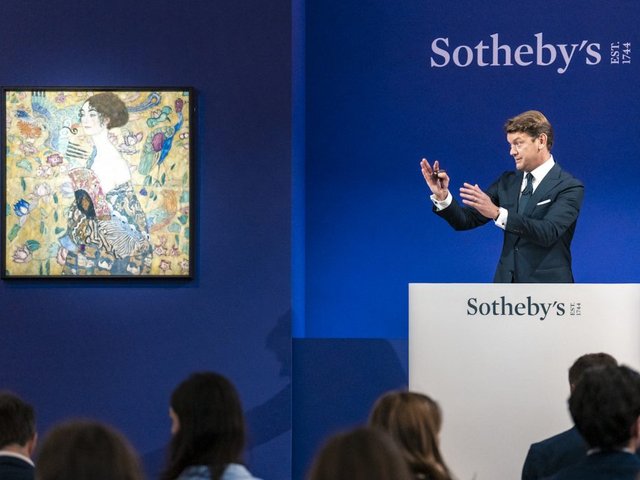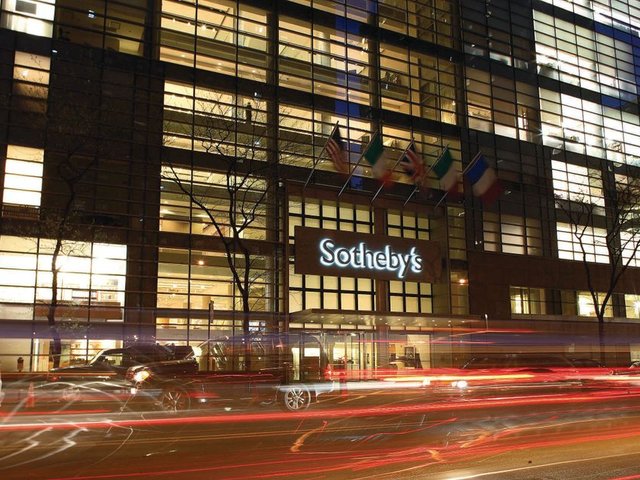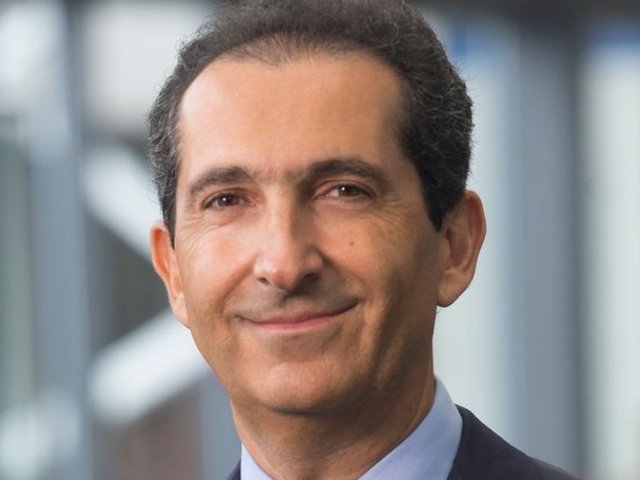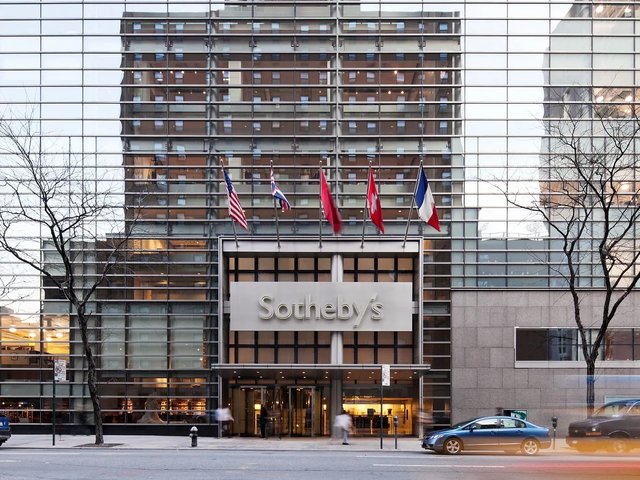In what speculators say are part of plans to float Sotheby’s on the New York stock exchange, owner Patrick Drahi is winding up the firm’s “defined benefit” pension plan, with plans to sell it on to two insurance firms. The move has angered former employees who say they took lower salaries in exchange for “good, secure pensions”.
The scheme was formed in 1974 but was altered in 1994 so that Sotheby’s could veto pay increases to match inflation, though members say they were not informed of this change till much later and therefore made financial decisions based on incorrect knowledge. The plan has almost 1,200 members, with around 500 currently claiming a pension. Some are now in discussion with lawyers, according to Eileen Goodway, of the Association of Sotheby’s Pensioners (TASP).
Goodway says Sotheby’s continued to pay discretionary inflationary increases every year until around 2008, during the banking crisis, stopping again in 2014 shortly after the billionaire art collector and activist investor Daniel Loeb gained a place on its board. “That was the first time members were notified that the company wasn’t paying increases and when [Loeb] and others started taking huge sums of money out the company, but not paying increases to pensions,” Goodway adds. Trustees protected the scheme by buying insurance policies.
Drahi’s plans are legal, and talks of the transfer began in 2018, before he took charge. However, Goodway says Drahi has not bought annuities that will give them increases, “so our pensions are now fixed”. She adds: “We were always told that this was a pension you could totally rely on. And that included inflationary increases.”
Many considered their pensions a delayed salary. “It was very much a case that we had lower salaries than our American counterparts. You took a reduced salary because you had this good, secure pension,” Goodway says.
Due to regulation changes in 1997, those with older pensions are further affected by adjusted rates. It is likely the move will also disproportionately affect women, who were unable to join the pension scheme until they were 30—compared with 21 for men. This changed under the Sex Discrimination Act of 1975, though women have continued to be underpaid compared with men, and not just at Sotheby’s. “A lot of this is a failure of pensions legislation,” Goodway says.
Goodman estimates that £50m would “secure a significant number of pensions”, meanwhile Drahi, known for his ruthless cost-cutting approach, reportedly secured a £450m loan against his Sotheby’s purchase. Last year he mortgaged the auction house's historic London headquarters on Bond Street.
The move comes as Drahi looks to streamline Sotheby’s ahead of a potential float this year on the New York stock exchange. Drahi—a French-Israeli media and telecom entrepreneur and art collector—bought Sotheby’s in a deal worth around $3.7bn in 2019, at which point the firm went private after 31 years of public trading. (Having become a UK public company in 1977, Sotheby’s went private in 1983 when it was acquired by Alfred Taubman. It then went public again in the US in 1988 as Sotheby's Holdings, Inc. and was renamed “Sotheby’s” in 2006.)
The auction house was among the big winners during the pandemic, achieving £5.4bn in sales in 2021, its highest annual total in its 277-year history.
In a recent trading update, Sotheby's said: “The UK Pension Plan will now go through the required process in order to proceed to a full buyout and ultimate wind-up of the plan in 2022.”
On 10 February, a Sotheby's spokesperson tells The Art Newspaper: "Across the country, the sort of defined benefit pension schemes that were commonplace a generation ago have become increasingly expensive, and have almost universally been superseded by the type of defined contribution pension schemes that the company now offers to its employees. The Sotheby’s defined benefit scheme was closed to new members more than 15 years ago (2004), and fully closed back in 2016—later than many other, similar schemes. In line with current best practice, Sotheby’s is now transferring responsibility for its historic defined benefits (“final salary”) pension scheme to external insurers, to increase the security of the benefits payable to pensioners and other members. The final stages of this process were initiated in 2018, prior to Patrick Drahi’s acquisition of Sotheby’s.”


